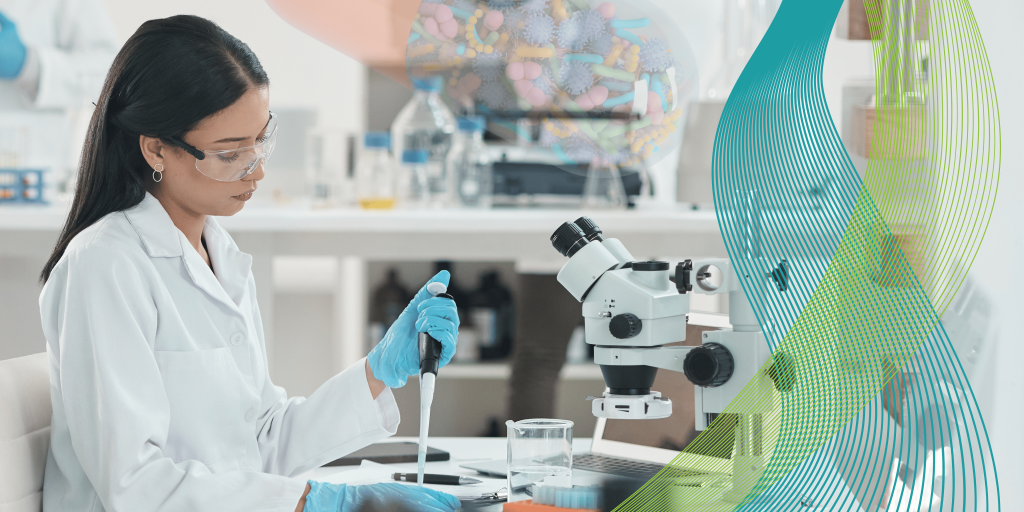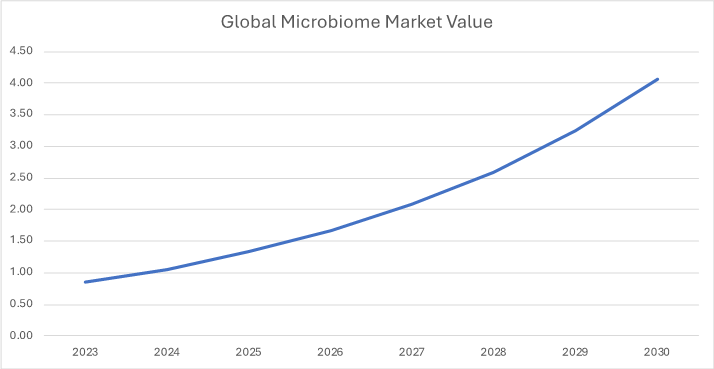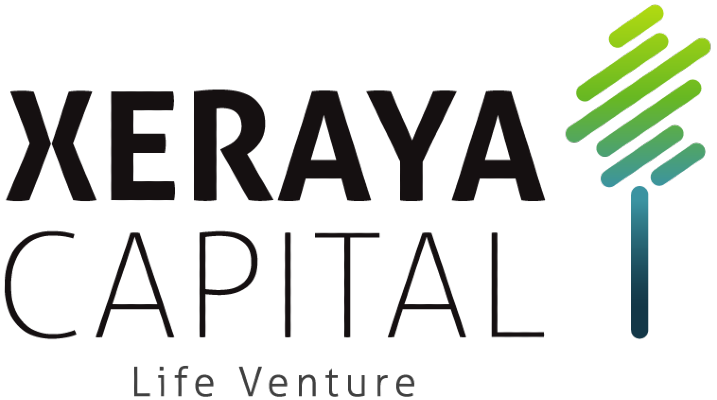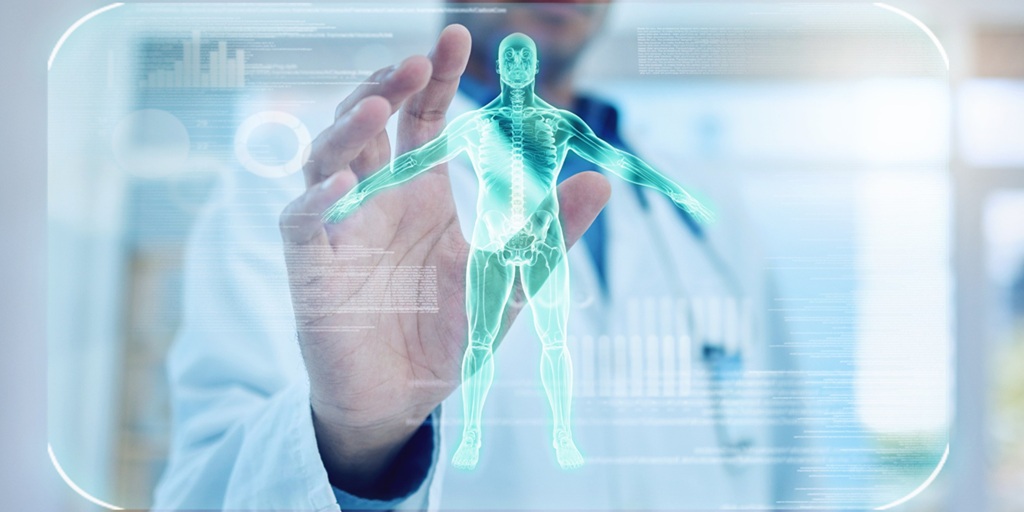March 2025

The human microbiome, a diverse ecosystem of microorganisms residing in and on the human body, plays a crucial role in maintaining overall health. These microbes, including bacteria, fungi, viruses, and archaea, interact with various biological processes, influencing digestion, metabolism, immune function, and even mental well-being. Recent advancements in microbiome research have shed light on its profound impact on human health, leading to innovations in personalized medicine, functional foods, and disease prevention. An imbalance in microbial composition, known as dysbiosis, has been linked to numerous health conditions, including autoimmune diseases, obesity, and mental disorders. As scientific understanding deepens, microbiome-based therapies and interventions are rapidly transforming healthcare, offering new opportunities for precision medicine, biotechnology investments, and even medical tourism. This article explores the latest developments in microbiome research, its applications in healthcare, and its potential economic and medical impact, particularly in Malaysia.
Personalized Medicine
One of the most transformative aspects of microbiome research is its role in personalized medicine. By analyzing an individual’s unique microbial composition, scientists can develop targeted treatments for conditions such as inflammatory bowel disease, obesity, and mental health disorders.
By tailoring therapies to an individual’s unique microbial makeup, medical professionals can enhance treatment effectiveness, reduce side effects and improve overall patient outcomes. Furthermore, emerging technologies such as metagenomic sequencing including genome-resolved metagenomic, and artificial intelligence including predictive modeling, are enabling deeper insights into the microbiome, paving the way for groundbreaking interventions and preventive measures in healthcare.
For example, microbiome-based therapies like Fecal Microbiota Transplantation (FMT) have been effectively used to combat chronic illnesses like Crohn’s disease and ulcerative colitis. Furthermore, emerging technologies like metagenomic sequencing and artificial intelligence enable deeper insights into microbial ecosystems, enhancing the precision of these treatments.
Personalized medicine has been transformed by microbiome research. By analyzing the microbial composition unique to each individual, scientists can develop targeted treatments that address specific health conditions. For example, microbiome-based therapies such as Fecal Microbiota Transplantation (FMT), are now being used to combat chronic illnesses like Crohn’s disease and ulcerative colitis. Additionally, researchers are uncovering links between gut microbes and mental health, paving the way for innovative treatments for anxiety and depression. Such advancements underscore the critical role of the microbiome in shaping not only physical health but also emotional well-being.
Key Microbiome-Based Therapies Across Medical Fields
| Therapy Name | Medical Application | Mechanism of Action |
|---|---|---|
| Fecal Microbiota Transplant (FMT) | Recurrent C. difficile infection | Restores gut microbial diversity and inhibits C. difficile regrowth. |
| FMT (for liver disease) | Hepatic encephalopathy in cirrhosis | Reduces ammonia production and improves cognitive function. |
| FMT (from immunotherapy responders) | Cancer immunotherapy (melanoma) | Enhances anti-tumor immunity, overcoming resistance to PD-1 therapy. |
| Escherichia coli Nissle 1917 (probiotic) | Ulcerative colitis | Nonpathogenic E. coli strain modulating immune response and gut barrier. |
| Bifidobacterium longum NCC3001 (probiotic) | Depression and IBS | Targets gut-brain axis, influencing neurotransmitters and mood regulation. |
| Akkermansia muciniphila | Metabolic disorders (obesity, metabolic syndrome) | Improves insulin sensitivity and gut barrier function. |
| Roseomonas mucosa (topical therapy) | Atopic dermatitis (eczema) | Restores skin microbiota, reducing S. aureus and inflammation. |
| Lactobacillus crispatus CTV-05 (LACTIN-V) | Recurrent bacterial vaginosis | Reestablishes Lactobacillus-dominated flora to lower vaginal pH. |
| Bacteriophage therapy | Multi-drug-resistant bacterial infections | Uses phages to target antibiotic-resistant bacteria without disrupting microbiota. |
Functional Foods and Nutraceuticals
Microbiome research is driving innovation in functional foods and nutraceuticals. Products like probiotics, prebiotics, and postbiotics are being developed to promote gut health and overall wellness. Malaysia, with its rich biodiversity and focus on halal-certified products, has become a hub for producing these health supplements. This aligns with global trends toward using microbiome-enhanced functional foods to address non-communicable diseases such as diabetes and obesity. These interventions enhance public health while driving economic growth through biotechnology and nutraceutical advancements
The Malaysian government is targeting a revenue contribution of RM2 billion to the country’s gross domestic product (GDP) from biotechnology and bio-based industries by the end of 2024. This initiative aligns with Malaysia’s strategy to diversify its bioeconomy and enhance its trade balance through exports, including microbiome-based health supplements. In 2023, biotechnology and bio-based companies in Malaysia recorded a total revenue of RM1.5 billion, indicating a strong foundation for growth in this sector. The industry specializes in the production of halal-certified postbiotics and had developed innovative products derived from plant-based bacteria.
Investment Opportunities in Healthcare
The global human microbiome market was valued at approximately USD 800–900 million in 2023. With an estimated CAGR of 25%, it is projected to exceed USD 4 billion by 2030.

The intersection of microbiome research and healthcare offers lucrative investment opportunities. With increasing demand for precision medicine and microbiome-based solutions, companies and governments are channeling resources into this transformative field. The global microbiome market is poised for significant growth, driven by technological advancements and the increasing adoption of personalized treatments.
Medical Tourism and Diagnostics
Malaysia is renowed destination for medical tourism, with leading healthcare providers offering top-tier medical services that draw international patients and contribute to the country’s gross domestic product. The role of medical tourism in Malaysia’s economy has grown significantly, with its share of GDP rising from 0.01% in 2002 to 0.1% in 2018. By 2023, revenue from medical tourism is projected to reach RM1.7 billion, reflecting a strong upward trajectory that supports the nation’s economic growth.
Incorporating microbiome-based diagnostics and therapies can enhance its appeal, particularly in markets like gut health and personalized medicine. Tailoring therapies to an individual’s unique microbiome profile can optimize health outcomes and improve the effectiveness of treatments. This innovation has the potential to position Malaysia as a leader in the field of personalized healthcare, attracting not only local patients but also international ones.
Microbiome research is revolutionizing modern healthcare by advancing personalized medicine, functional foods, and diagnostics. Breakthroughs in microbial analysis and artificial intelligence have enabled the development of targeted treatments for chronic conditions, including inflammatory bowel diseases, metabolic disorders, and even mental health conditions. Additionally, microbiome-based nutraceuticals and probiotics are gaining traction as effective interventions for non-communicable diseases like diabetes and obesity. Malaysia’s growing role in biotechnology, halal-certified microbiome products, and medical tourism highlights the sector’s economic potential. With the global microbiome market expected to exceed USD 4 billion by 2030, investment opportunities in microbiome-based healthcare are expanding rapidly. As scientific advancements continue, integrating microbiome research into mainstream medicine will unlock new frontiers in disease prevention, treatment, and economic growth, shaping the future of healthcare worldwide.
References:
- Bernama. (2022, December 28). Duopharma first company to get halal certification for oncology product. Bernama.
- Siddharta, A. (2024, August 2). Revenue from medical tourism in Malaysia from 2014 to 2023. Statista.
- Afzaal, M., Saeed, F., Shah, Y. A., Hussain, M., Rabail, R., Socol, C. T., Hassoun, A., Pateiro, M., Lorenzo, J. M., Rusu, A. V., & Aadil, R. M. (2022). Human gut microbiota in health and disease: Unveiling the relationship. Frontiers in Microbiology, 13.
- Martinez, J. E., Kahana, D. D., Ghuman, S., Wilson, H. P., Wilson, J., Kim, S. C. J., Lagishetty, V., Jacobs, J. P., Sinha-Hikim, A. P., & Friedman, T. C. (2021). Unhealthy Lifestyle and Gut Dysbiosis: A Better Understanding of the Effects of Poor Diet and Nicotine on the Intestinal Microbiome. Frontiers in Endocrinology, 12.
- Huang, G., Khan, R., Zheng, Y., Lee, P.-C., Li, Q., & Khan, I. (2023). Exploring the role of gut microbiota in advancing personalized medicine. Frontiers in Microbiology, 14.
- Ratiner, K., Ciocan, D., Abdeen, S. K., & Elinav, E. (2024). Utilization of the microbiome in personalized medicine. Nature Reviews Microbiology, 22(5), 291–308.
- Kim, N., Ma, J., Kim, W., Kim, J., Belenky, P., & Lee, I. (2024). Genome-resolved metagenomics: a game changer for microbiome medicine. Experimental & Molecular Medicine, 56(7), 1501–1512.
- Mori, H., Kato, T., Ozawa, H., Sakamoto, M., Murakami, T., Taylor, T. D., Toyoda, A., Ohkuma, M., Kurokawa, K., & Ohno, H. (2023). Assessment of metagenomic workflows using a newly constructed human gut microbiome mock community. DNA Research, 30(3).
- Kumar, A., Pramanik, J., Goyal, N., Chauhan, D., Sivamaruthi, B. S., Prajapati, B. G., & Chaiyasut, C. (2023). Gut Microbiota in Anxiety and Depression: Unveiling the Relationships and Management Options. Pharmaceuticals, 16(4), 565.
- Bu, F., Yao, X., Lu, Z., Yuan, X., Chen, C., Li, L., Li, Y., Jiang, F., Zhu, L., Shi, G., & Chen, Y. (2022). Pathogenic or Therapeutic: The Mediating Role of Gut Microbiota in Non-Communicable Diseases. Frontiers in Cellular and Infection Microbiology, 12.




